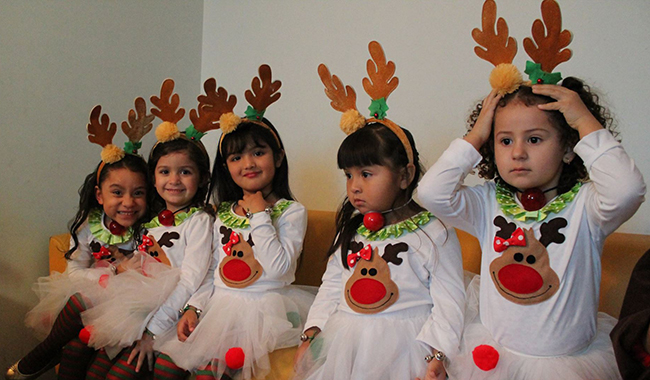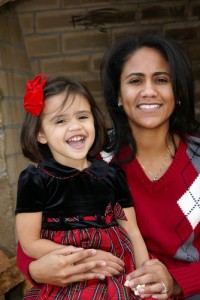Holiday Cheer with Children – VP of Curriculum Dee McDonald

Welcome to the most wonderful, and possibly stressful, time of the year! Holiday cheer can turn into holiday headaches without proper expectations and preparation for your child. Let us help you teach your child life lessons in a holiday setting.
 The lyrics to a holiday song in the United States outline the toy wish list for children this time of year:
The lyrics to a holiday song in the United States outline the toy wish list for children this time of year:
A pair of hop-along boots and a pistol that shoots
Is the wish of Barney and Ben,
Dolls that will talk and will go for a walk
Is the hope of Janice and Jen,
Mom and Dad can hardly wait for school to start again.
Of course, the last line in the lyrics represents the feeling of many parents . As the anticipation of school holidays increases the excitement for children, it often raises the anxiety for parents.
One of the best pieces of advice I received when raising my daughter is to keep the out of school schedule similar to the school day schedule. Mischievousness finds its way into a vacuum, meaning if there is not a schedule of the day, your child will create their own. Talk to your child about what they want to accomplish each day. Establish goals and give them an opportunity to help achieve them. For instance, talk to your child each morning and encourage them to think of ways to help: “Today, I have to change the linens on the beds, how can you help me with that?” Include them in your grocery and meal planning. Let them make choices (should we have carrots or peas with our dinner?). This will help your preschooler feel empowered and a part of the celebration process.
 Keep your children busy by encouraging them to contribute to holiday events. Let them create place mats and name tags for guests at dinner. Have them design holiday crafts that can be displayed in your home or bake cookies and treats for neighbors and friends.
Keep your children busy by encouraging them to contribute to holiday events. Let them create place mats and name tags for guests at dinner. Have them design holiday crafts that can be displayed in your home or bake cookies and treats for neighbors and friends.
In her Washington Post column On Parenting, Amy Joyce gives great tips on how to involve children in the holiday season.
Here are some of those tips:
Think ahead. Figure out what you can do to structure the event for the least negative impact on the family’s typical schedule, and prepare the kids for what to expect. In other words, don’t do dinner at 8 p.m. if you have children who go to bed at 7:30. Explain to them either before you go to a gathering or as the holiday nears how things will work.
Be realistic. Set developmentally appropriate expectations of, for example, how long your child can actually sit. Or how much conversing with adults will actually happen. Think your child can realistically sit nicely for 15 minutes? Let that be the thing you focus on. Want your son to speak kindly to an aunt he doesn’t know? Practice that conversation in advance. It may help you, too, so you don’t get unreasonably annoyed when your 5-year-old wants to leave the table before everyone is finished.
My favorite suggestion that Amy makes is to let your child find a service project. This is a great time of year to let children understand that volunteering at an animal shelter or an elder care facility will help these organizations greatly. Richard Weissbourd, co-director of the Making Caring Common Project at Harvard suggests that you ask your children to think about someone outside of the family who has helped them. Think about people you don’t normally thank — the custodian at school, the mail carrier, the bus driver. Then do something to express appreciation, whether that’s a note, a gift or an offer to do something helpful. “It’s like putting people on kids’ radar who they aren’t normally grateful for,” he said. And hopefully, these specific activities will spur ongoing activities beyond the holidays.
Holiday out of school time can be enjoyable, calm, and productive. Eliminate the stress and embrace the fun that this time of year has to offer.
